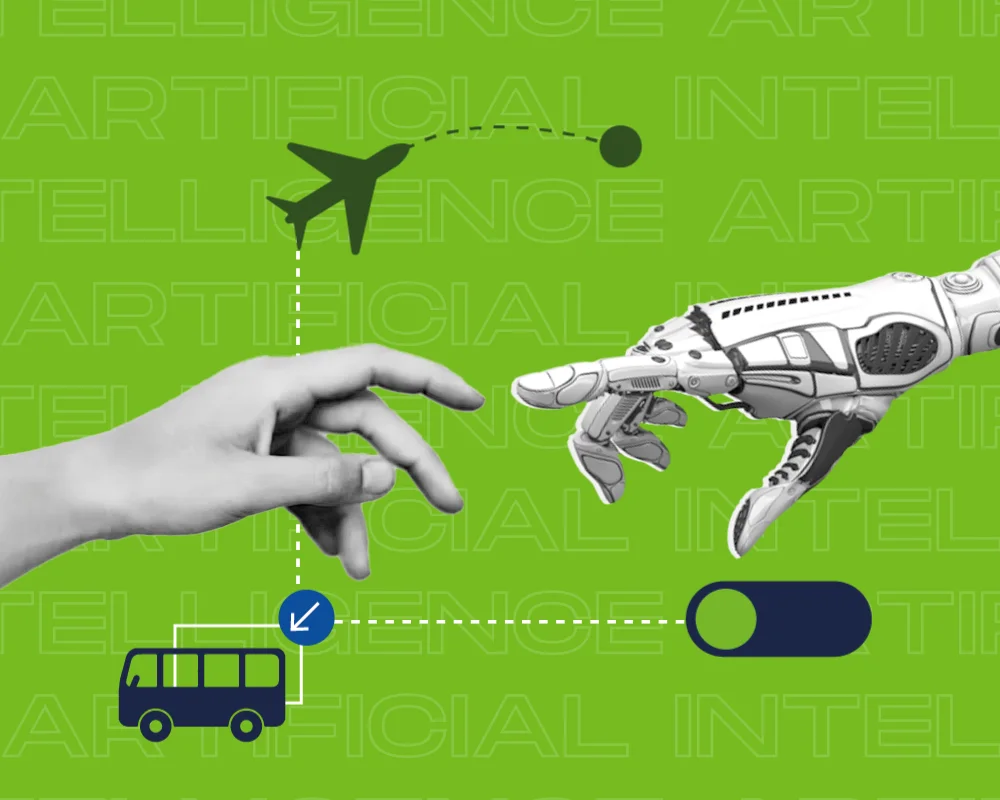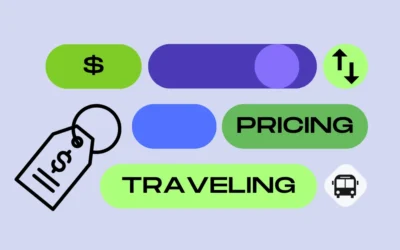Discover how Artificial Intelligence is revolutionizing the travel industry: optimizing experiences, anticipating needs, and increasing efficiency.
Artificial intelligence (AI) is rapidly transforming the global travel industry by providing innovative solutions that improve the user experience, optimize operations, and increase business efficiency.
AI impacts travel, with customer service center efficiency being the most widely reported benefit. By next year, it is expected to influence the industry significantly. The most visible applications (new search, shopping, and booking options) will garner much of the attention, according to a study by Deloitte.
So-called generative AI is impacting this industry the most. This type of AI helps to understand the user, i.e. truly, it can understand the user at the language level.
For example, generative AI can understand what the user wants, and go beyond that, by anticipating what the person wants to book or the tickets they are looking to buy online, by knowing the routes the user uses the most. That is, it can recreate a personalization experience you normally get in a conversation with a person.
This 2024, according to the report conducted by Deloitte, is expected to be an exciting year for AI applications in travel, and the first game-changing integrations will begin to be developed.
How does Generative AI work?
We know that generative AI is making a major impact on the travel industry, but how does it work? Here we explain in more detail what this type of technology is all about.
Generative AI is a type of artificial intelligence that can produce various types of content, such as text, images, audio, and synthetic data, according to George Lawton, from the specialized portal TechTarget.
The recent boom in generative AI is due to the simplicity of new user interfaces for creating high-quality text, graphics, and video in a matter of seconds.
Lawton explains that generative AI is not a new technology; it was introduced in the 1960s in chatbots. But it wasn’t until 2014, with the introduction of generative adversarial networks (GANs), a type of machine learning algorithm, that generative AI was able to create compelling images, videos, and audio of real people.
How is AI being applied in the travel industry?
Airlines, bus companies, and hotel service providers know they have to improve the experience they offer or risk losing travelers. This means an investment in technology and an urgency to understand how generative artificial intelligence (Gen AI) can improve the traveler experience.
In addition to focusing on operational efficiency, leading travel providers are expected to take more visible steps to improve end-to-end travel. Below we share with you the measures that will be taken, according to the study conducted by Deloitte:
- More automated digital features in the app to address common friction points.
- Traveler-specific services and enhancements through loyalty rewards and attractive personalized offers.
- Increased investment in equipment, including offering to keep up with advances in traveler technology.
- Continued innovations in attribute selling, and bundling. In addition to improving their products, travel industry companies are likely to redouble their efforts to connect guests with great experiences beyond rooms, coaches, and airplanes.
For a better understanding of how AI has its main applications in the sector, we will explain three of its applications and benefits for the travel industry.
Inventory and Capacity Management
AI helps optimize inventory management of flights, hotel rooms, and other services, ensuring better utilization of resources and minimizing overcapacity.
Personalization in travel recommendation
Personalization with AI in travel recommendation is based on the use of algorithms and artificial intelligence techniques to analyze large amounts of data about users’ preferences, behaviors, and travel patterns.
These algorithms can examine data such as search history, previous bookings, social media interactions, and other relevant factors.
Predictive Analytics
By using AI, companies can forecast future trends, destination demand, changes in consumer behavior, and other key factors to make informed, strategic decisions.
Reservamos SaaS Platform AI
Reservamos SaaS developed a technology called Platform AI, which adapts to eCommerce bus companies.
To enable these capabilities it was necessary to collect traveler interactions in eCommerce, enhance them with our technology, and store them in ReservamosONE, which not only acts as a powerful business intelligence system but is also crucial for optimal experience personalization and revenue management.
Special features of the first releases available in Platform AI are:
- Source and destination prefill
- Source and Destination Switching
- Calendar optimization – Select today or tomorrow
- Search-oriented behavior
If you are a bus company interested in taking advantage of technology trends, don’t hesitate to look for a specialized technology partner such as Reservamos SaaS. Our experience in the sector has allowed us to work with companies in Mexico, Brazil, Colombia, and Chile.

 Español
Español


